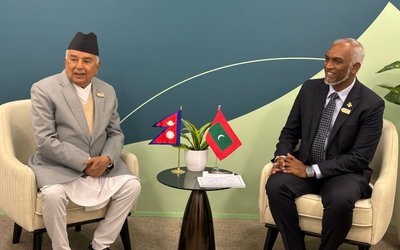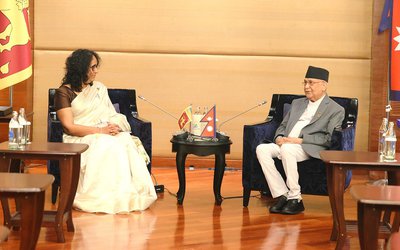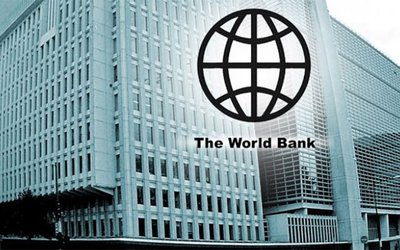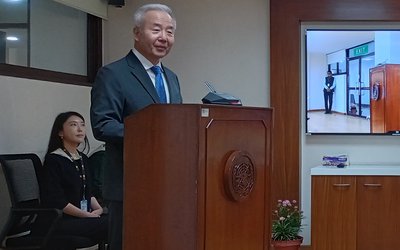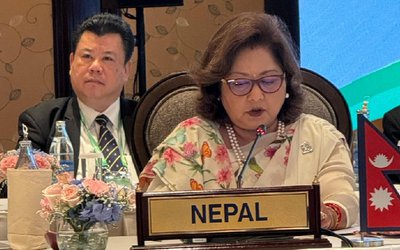Climate Change is referred as a crisis in today’s world with the increasing risk of temperature, rise of sea level, extreme weather patterns and extinction of species. As the effects amplify, the women, children and youth face its adverse impacts the most. Climate change is happening for real. It is our collective and shared responsibility to raise voices and act on climate actions. It is not just an environmental issue. It presents severe ethical challenges of fairness and responsibility across individuals, communities, nations and generations.
There are agreements and conventions on Climate Actions. The UN Framework Convention, Kyoto Protocol and Paris Agreement vividly illustrate the need to strengthen global efforts to combat Climate Change and accelerate actions and investments needed for sustainable low carbon future. The recent 24th session of the Conference of the Parties (COP24) to the UN Convention on Climate Change (UNFCCC) in Katowice, Poland, outcome was to be more ambitious.
There is the presence of youth delegates in many of the Climate Related Conventions globally. Intergovernmental organizations have special focus on youth civic engagement as a key opportunity to promote responsiveness about the importance of youth on agenda for sustainable development and climate actions.
Young people are always at the forefront of Climate Actions. Research illuminates that youth are the critical stakeholders to fight climate change and transform better world for every individual.Young people can be climate advocates to revitalize public connections, raise awareness, generate innovative ideas and create momentum across the border to adapt to climate crisis. Given the fact that youth voices and participation are absent from the policy decision making tables, despite youth population, they are the ones to face the collective impacts of climate change actions and inactions.
No doubt, Nepal is one of the most vulnerable countries to the impacts of climate change and climate induced hazards. According to studies, Nepal ranks fourth in climate change vulnerability. Nepal being a low carbon emission country, with impacts of climate change like melting of glaciers, change in temperature and precipitation and risks to multiple natural disasters have significantly increased. We need immediate, concrete and collective actions proactively to address issues of climate change and youth engagement can be a part of it.
We should continue to push on following factors to enhance youth engagement for climate change actions:
- Capacity building of youth and youth-led CSOs on risks and realities of climate change
- Mobilizing youth as a change maker to promote climate change education and information to mitigate and adapt to climate change
- Promote dialogue with youths and their participation with policy makers on the areas of climate actions and environmental issues at local, provincial and national levels
- Involvement of youth in climate justice advocacy so that their voices are heard by decision makers and duty bearers for adapting to climate change, transferring technology and gender responsive climate policy
- Formation of climate youth taskforces at local, provincial and national on ensuring climate change finance and climate solutions
- Young people as climate activist/ advocates to generate testimonies for climate actions in local, national and global levels
Youth engagement is fundamental in climate change actions. Through education, researche, training, network and technology many young people are developing skills and getting vocal to speak for climate actions. Youth needs more knowledge and capacity to critically assess and address climate change challenges. It is important to acknowledge youth as powerful group of society so their engagement across various demographics is necessary for bold climate change actions connecting environmental, ethical, social and political dimensions - as an issue of human rights.
(Aagya Pokharel, Masters in Human and Natural Resource Studies from Kathmandu University, can be reached through aagya.pokharel28@gmail.com)

Aagya Pokharel
Aagya Pokharel
- A Day To Remember Humanitarian Aid Workers: 19 August World Humanitarian Day
- Aug 19, 2022
- Youth Participation In Nepali Politics
- Feb 07, 2022
- Roles Of CSOs In implementing UNSCR 1325
- Dec 05, 2020
- COVID-19: A Black Swan Event
- Jul 07, 2020
- COVID-19 Risks For Displaced And Host Communities
- Apr 17, 2020
